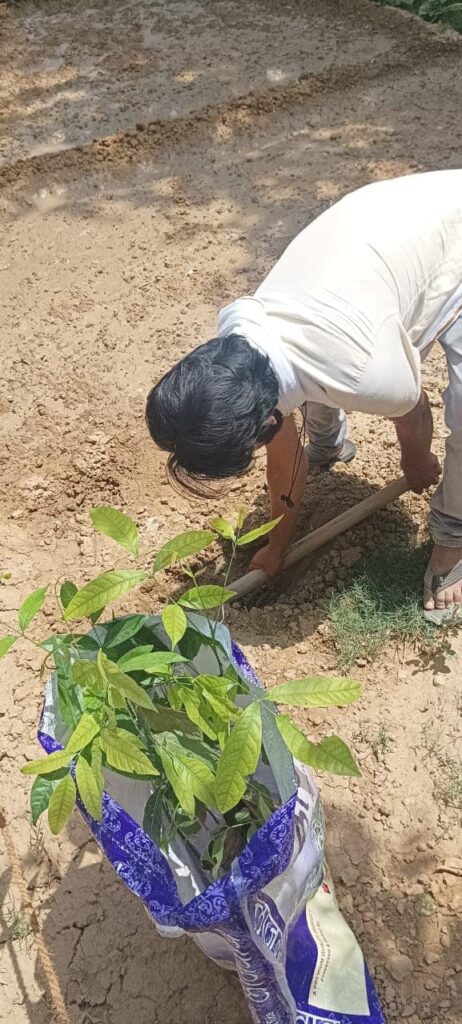Integrated Agriculture: Building Sustainable Futures for Communities
At Kashi Educare Society, we believe in creating a more resilient and sustainable future for rural communities through Integrated Agriculture. This holistic approach combines diverse agricultural practices, empowering farmers to improve productivity, enhance food security, and protect the environment—all while fostering economic growth.
What is Integrated Agriculture?
Integrated Agriculture is a farming approach that combines various agricultural practices in a complementary manner to optimize land use, increase farm productivity, and promote environmental sustainability. It focuses on the integration of crops, livestock, trees, water management, and soil health into one cohesive farming system.
By working with nature rather than against it, integrated agriculture not only supports the health of the environment but also helps farmers and communities adapt to challenges such as climate change, soil degradation, and food insecurity.
Our Approach to Integrated Agriculture
At Kashi Educare Society, we focus on several core principles within integrated agriculture that benefit smallholder farmers, families, and communities:
- Agroecology & Sustainable Farming
We promote farming practices that are in harmony with the environment. Through agroecology, we reduce dependency on harmful chemicals and encourage natural farming techniques like crop rotation, intercropping, and organic fertilizers. These practices help protect soil health, improve water retention, and increase biodiversity. - Agroforestry
By integrating trees into agricultural landscapes, we help farmers diversify their income sources and improve environmental resilience. Trees provide shade, reduce soil erosion, and increase water infiltration. Additionally, they produce fruits, nuts, timber, and medicinal plants, all of which can enhance farmers’ livelihoods. - Livestock and Crop Integration
We encourage the integration of livestock and crop farming to create a sustainable, circular system. Livestock provide manure that enriches soil fertility, while crops offer food and fodder for animals. This reduces the need for external inputs and creates additional sources of income, including dairy, meat, and poultry products. - Water Management & Irrigation
Efficient water management is essential to ensure sustainable agriculture, particularly in areas prone to drought. We support farmers with rainwater harvesting systems, drip irrigation, and training in water-efficient practices that boost crop yields while conserving precious water resources. - Climate-Smart Agriculture
Climate change is one of the biggest challenges facing agriculture today. Our climate-smart agriculture initiatives focus on introducing drought-resistant crop varieties, soil conservation techniques, and efficient irrigation systems. By helping farmers adapt to changing climate conditions, we increase their resilience and productivity. - Diversified Income Streams
Integrated agriculture creates opportunities for multiple sources of income. From crops to livestock, forestry products to agro-processing, farmers can build diversified businesses that reduce risk and improve financial stability.
Get Involve
Together, we can build sustainable agricultural systems that benefit both people and the planet. Whether you’re a donor, volunteer, or part of a community looking to make a change, there are many ways to support our work in integrated agriculture.
- Donate to help us provide farmers with the resources they need to implement integrated farming practices.
- Volunteer your time and skills to support training and field programs.
- Partner with us to scale up sustainable agricultural practices in more communities.

